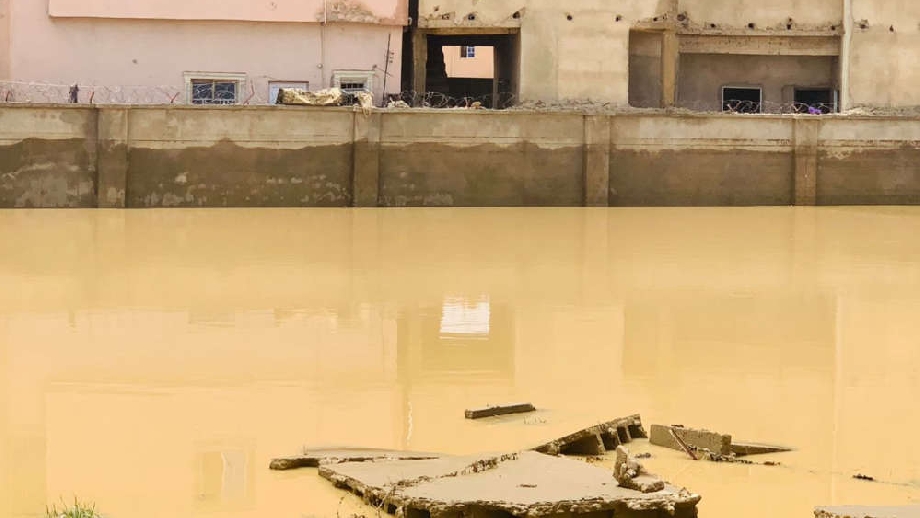
Two days of rainfall in Kano have become a source of sorrow for residents of Kwarnar Baure in Kano State.
The community in Jaba, Ungogo Local Government Area, was submerged by floods that destroyed goods and properties worth millions of naira.
The floods sacked many residents from their homes and left schools empty as students deserted their classrooms.
The residents say the flooding was caused by the Federal Airport Authority of Nigeria’s blockage of waterways at the Mallam Aminu Kano International Airport (MAKIA).
NiMET Alerts Kano Residents on Flooding in 2024
In May, the Nigerian Meteorological Agency, NiMET, raised the alarm over the likelihood of high-risk flooding in 14 out of the 44 local government areas (LGAs) of Kano State.
The NIMET Kano/Jigawa Territorial Coordinator, Dr. Nuradeen Abdullahi, stated this at a Disaster Risk Management Stakeholders Coordination Meeting on Seasonal Climate Prediction and Annual Flood Outlook in Kano.
Over 33,000 people were affected by 2023's flooding after NiMET issued a similar alert.
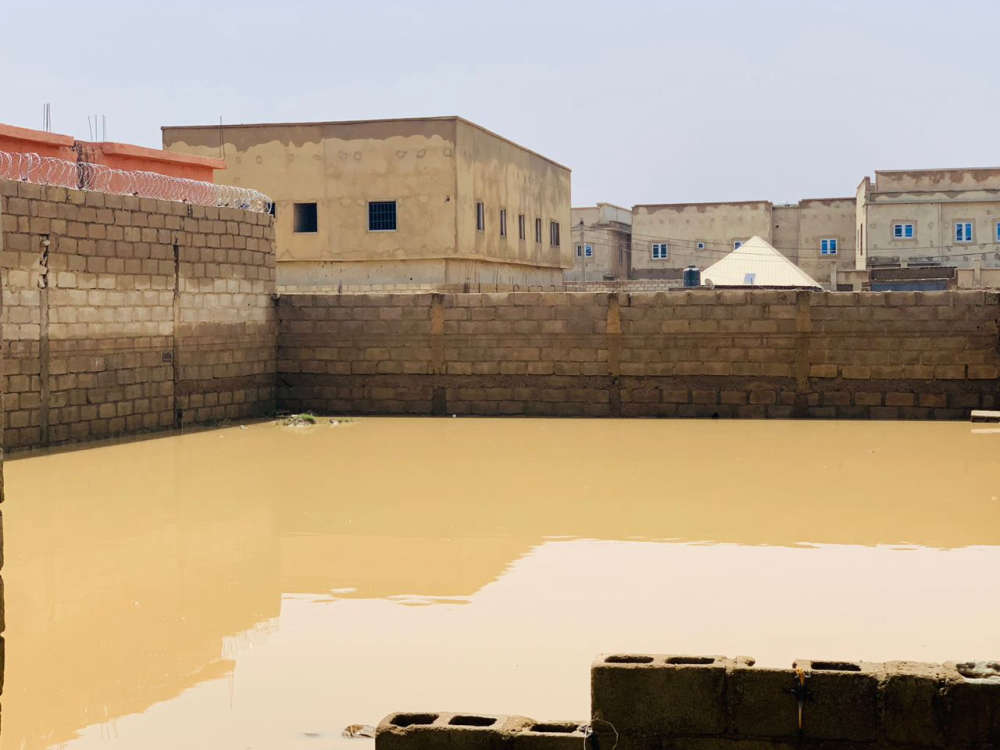
Abdullahi named the LGAs to include Rimin Gado, Tofa, Kabo, Madobi, Garum Malam, Bebeji, Rano, Dawakin Kudu, Warawa, Wudil, Sumaila, Ajingi, Kura, and Dala.
He said five other LGAs – Karaye, Takai, Bunkure, Dawakin Tofa, and Makoda – were moderately prone to high-risk flooding.
Even though these LGAs are not within the Kano metropolis, some areas in the city, such as Zungeru Road, Jaba, Zoo Road, Kano Line, Jankara, Kurumi, Fagge, and Kofar Nasarawa, usually experience flooding every year.
Victims of Jaba Flood Share Their Stories
One of the victims of the reoccurring environmental disaster in Jaba, Sulaiman Bello, his wives, and children, were left searching for shelter after the flood submerged their four-bedroom flat.
Bello revealed that he “fled the community with his wives and children in search of shelter for his family.”
While Bello fled the community, Mrs. Ngozi Ojo, her husband, and four children had no option but to stay inside their only flooded home.
“My fridge, mattress, couch, and food items were all soaked in the water. The documents were flowing on water. And because we don’t have any other place to go we still sleep inside the house, and everyone is catching cold,” she said.
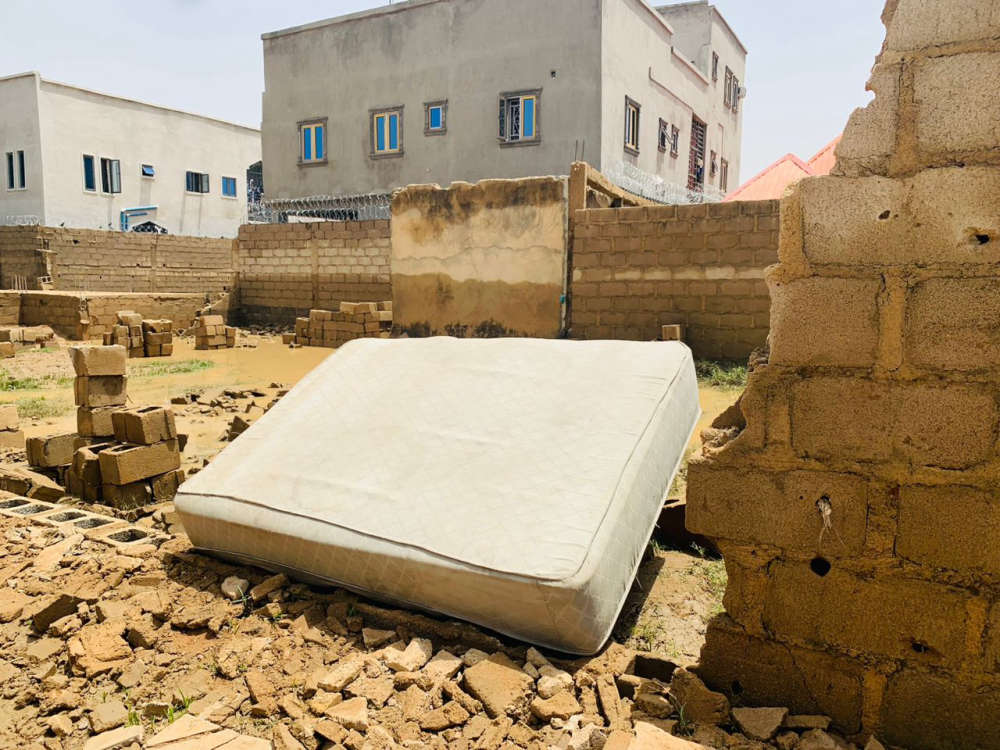
Augustine Otobo is another victim of the flood. He said it would cost him N2 million to fix the damages to his property.
“This is my swimming pool, and the flood destroyed it. It will cost me nothing less than N2 million to reconstruct it. I am calling on FAAN to open the waterways to allow the free flow of water.”
Omosimua Thomas is another victim whose sports utility vehicle was almost condemned after the floodwaters filled the vehicle.
Thomas revealed that he would spend N200,000 to repair the car. His food items, including four bags of rice, were all condemned by the flood.
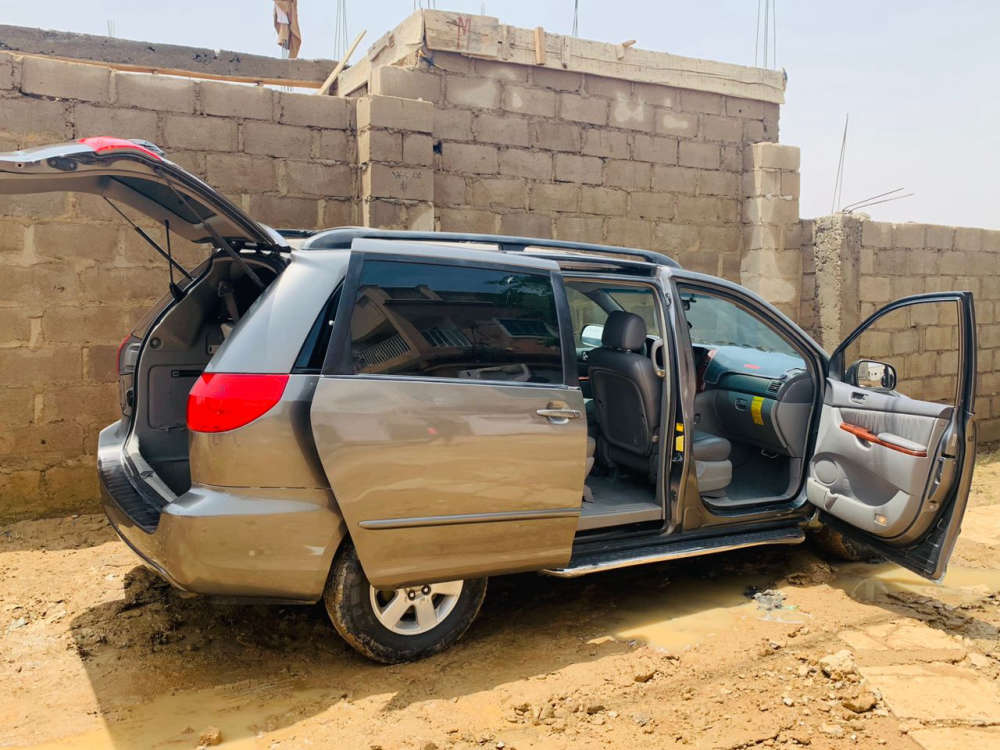
The flood destroyed property fences and ongoing construction property and submerged more than 50 houses, damaging household equipment, electronics, and documents.
Community Leaders Accuse FAAN of Negligence
A youth leader in the Jaba community, Saminu Khalid Abdullahi blamed the Federal Airport Authority of Nigeria (FAAN) for blocking the waterway that runs through the airport down to the Minjibir Wase Dam after installing a mesh wire for security.
“This happens every year, but it's usually worse when FAAN fails to remove the irons they put in the canal. That is the case this year. We reported it to them but nothing has been done.”
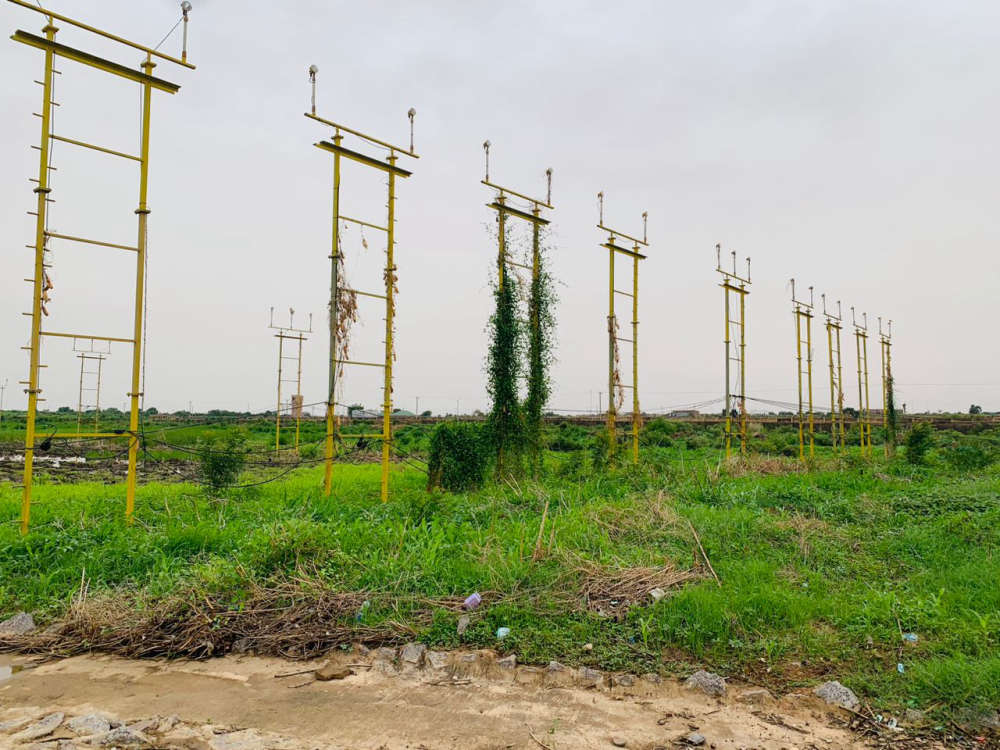
Similarly, the Ward Head of Jaba, Musa Usman said, “The airport authority turned a blind eye to the imminent dangers associated with the blocking of the waterway despite formal complaints lodged by the residents.”
Usman, represented by Sabi’u Kabiru Umar, lamented that nothing was done despite discussing the matter with the airport officials.
He urged “the management to do the needful by removing the iron till after the rainy season.”
Findings by Nigeria Info revealed a natural waterway that starts from Ungogo and flows through the Mallam Aminu Kano International Airport (MAKIA) into the Minjibir Wase Dam, about 18 kilometers from the airport.
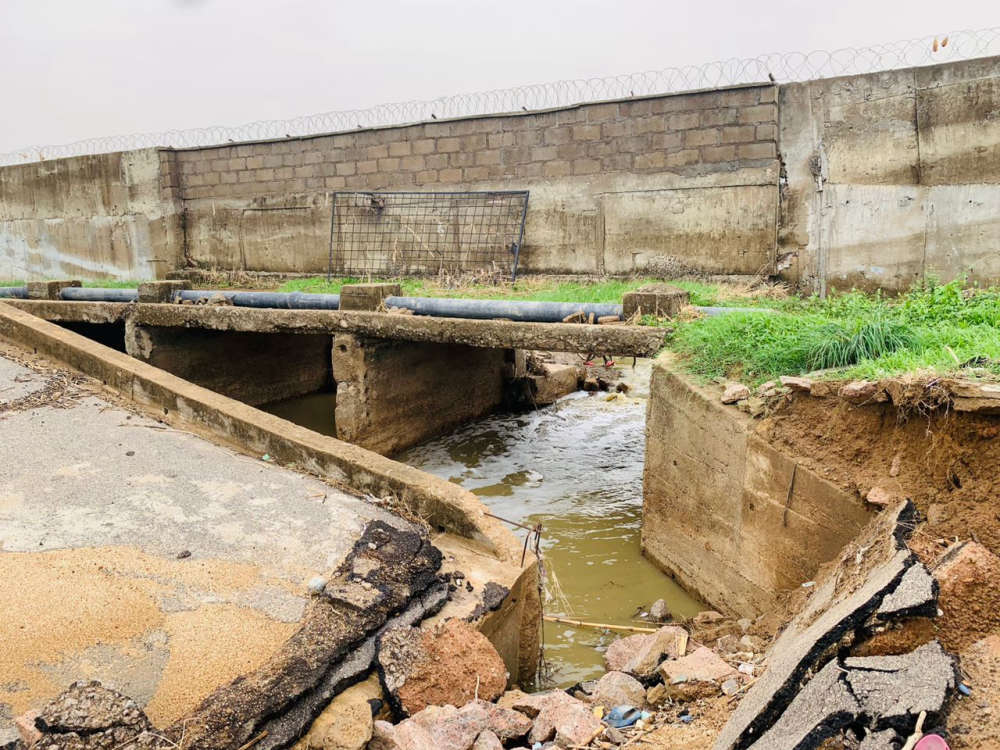
The waterway was there before the construction of the airport and other developments in the area.
Water flowed through the airport whenever it rained. This, and insecurity led FAAN to construct a canal and put a wire mesh to prevent residents and animals from accessing the runway.
FAAN Loses Two Bridges
Aside from the damages recorded in the community, FAAN also had its fair share of the problem, as the flood destroyed two bridges in its vicinity, one located just 350 meters to the airside.
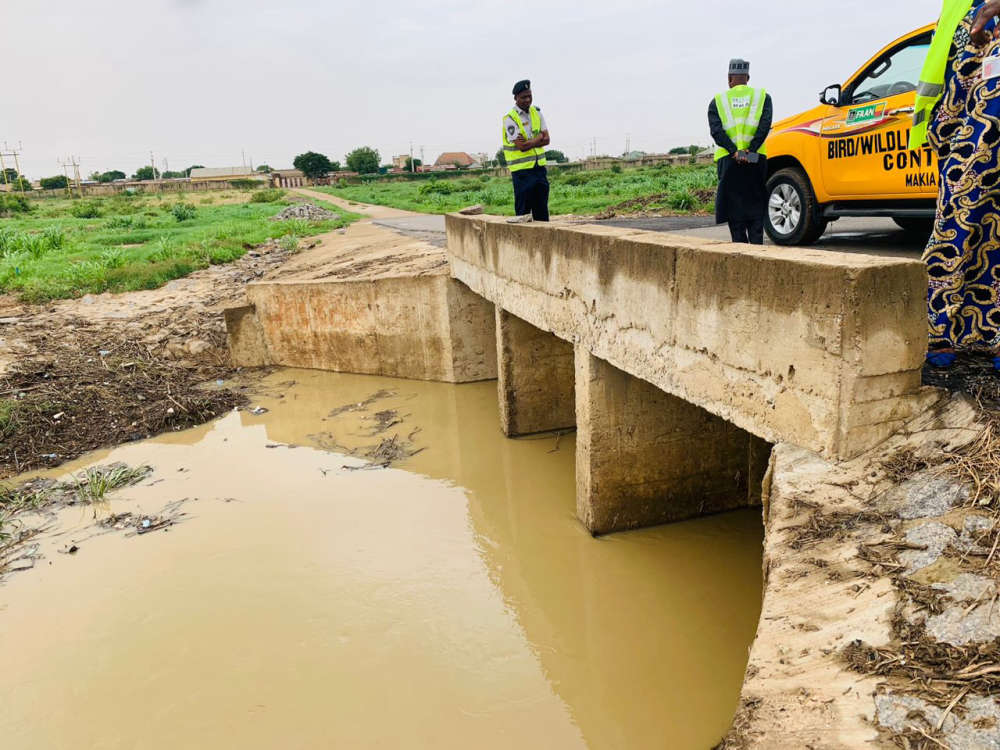
The flood also destroyed the airport’s perimeter fence, retaining walls, and isolated transformers.
I saw a special team, led by FAAN’s Regional General Manager, Dan-Musa Abdullahi inspecting the affected locations to assess the damage.
He refuted the residents’s accusation that the mesh wire was responsible for the flood. Instead, he blamed the “Jaba residents for building on waterways.”
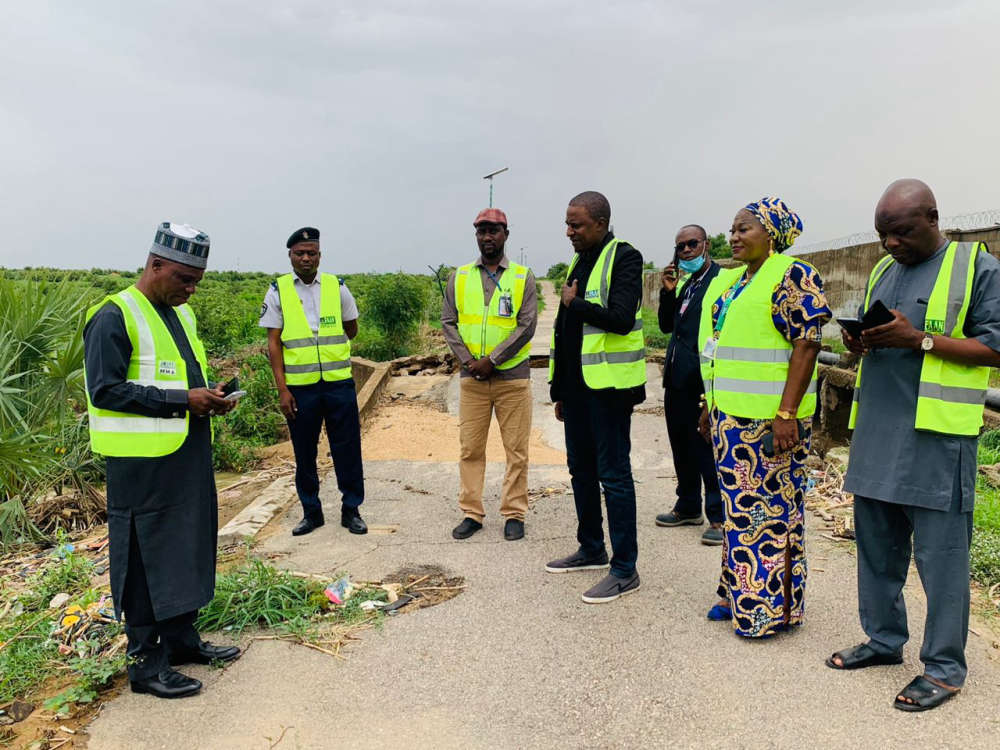
FAAN’s Head of Environmental Management Services at MAKIA, Suma’illa Muhammad Alkali, buttressed Dan-Musa’s point, saying “The airport is a low elevation area, hence the flood is not caused by the airport.”
Alkali urged the Kano State government to “revoke lands built on waterways and expand the drainage system in the area for the safety of all.”
As the blame game continues, the Kano State Commissioner of the Environment and Climate Change, Nasiru Sule Garo has deployed engineers to conduct a damage assessment in the affected areas.
The Director of Environmental Pollution Control of the ministry, Abba Adamu Takai who led the team, faulted FAAN and residents over the predicament, saying that the government will clear the drainage system to avoid a reoccurrence.
“The airport used to clear the bushes and drainage but they did not do it this year. Henceforth nobody should build on the waterways in the community. But the government has approved that the ministry takes a drainage clearance to avoid the reoccurrence of the flooding,” he said.


